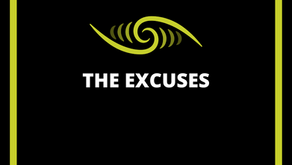Having worked with a LOT of ‘Buyers’ (organisations that procure services like government agencies, councils, and corporate organisations) we hear and see the good, bad and the ugly.
Don’t get us wrong, most of the organisations we work with are amazing and there are some fantastic initiatives going on to embed supplier diversity. Most understand “what supplier diversity is and why it matters in Aotearoa”.
But, on the odd occasion we do come across those that don't share our enthusiasm and look at us blankly when we talk about impact, equity, and affirmative action.
These are usually specific individuals as opposed to organisations as a whole, (unless it's the leader of the organisation) that don’t yet understand what, why and how of supplier diversity. In this article, we will go over the “why nots’” a.k.a the top myths that we hear and how we handle them.
Māori and Pasifika businesses are small and don't have the capability
97% of all New Zealand businesses are small, so like all New Zealand businesses there are some Māori and Pasifika businesses that are small. However, there are also large businesses. They are not all the same and shouldn’t be put into one bucket. The average size of a Māori and/or Pasifika business is between 11-15 staff. Some businesses are sole traders, and some have 300+ staff. Some want to double their workforce and turnover and others are happy maintaining their current position. It’s important that due diligence is done on businesses as per standard procurement processes to ensure the right business is engaged for the right opportunity
The government rules of sourcing don’t allow us to do supplier diversity
That’s incorrect. The government rules of sourcing do enable supplier diversity and should be used as an enabling tool. In fact, Rule 17; increase access for New Zealand businesses, specifically calls out increasing access to opportunities for Māori and Pasifika businesses. Also, following a cabinet directive to increase Māori business access to government contract opportunities there is now a target for all mandated agencies to ensure that at least 5% of the total number of annual procurement contracts are awarded to Māori businesses. It’s important to note to those that use the rules as an excuse that supplier diversity does not mean you can’t run a competitive and transparent process. Our favourite line is that this isn’t a handout, it's a hand up. As a procurer you are trying to find ways to enable Māori and Pasifika businesses to compete for work
Supplier Diversity is another job on top of our already busy job, it's a burden.
Organisations don’t need to make significant structural or organisational changes to their procurement policies and processes in order to achieve supplier diversity quick wins. Good procurement already expects that procurement professionals are thinking of additional value, doing market scanning, and opening the door for alternative solutions and suppliers. Really simple questions can be added to procurement documents to extract more value and include social outcomes. Rather than represent an additional “burden”, supplier diversity can: - achieve benefits in the community - assist the organisation to meet its supplier diversity targets
A 5% target for Māori businesses is not fair
Māori make up 16.7% of the population and we haven’t even been able to award 5% of our public sector spend with this population group. Currently, the playing field in public procurement is not fair and is not even. Māori businesses are not well represented among government suppliers. We know that buyers often prefer to work with those they know and reward suppliers that have a track record with them as part of the evaluation criteria. What this means is that diverse suppliers are often locked out of being able to compete for work. Developing a strong Māori supply market that ensures a greater diversity of suppliers can bid for contracts is not anti-competitive, but pro-competitive, ensuring that the supply markets remain dynamic and diverse. It's important to understand that all Māori businesses still need to be assessed, compete and win based on their own merits, this is not a handout. Additionally, it creates so many benefits not just for Māori businesses and communities but for Aotearoa as a whole. If the Māori economy prospers then we all prosper.
There’s not enough Māori and Pasifika businesses out there, the market is too small
The Amotai database of verified Māori and Pasifika suppliers is on track to hit 1000 suppliers by December 2021 (currently 850). The latest Te Matapaeroa report by TPK identified that there are around 10,200 Māori businesses in Aotearoa. We know that the number of Māori businesses is growing nationally and expect that to grow further as interest in buying from diverse businesses grows
Supplier Diversity means a compromise on the quality of goods and services.
This is not true. Using diverse suppliers does not mean that quality drops nor should it mean that organisations drop their expectations of quality. The same due diligence should be done on a diverse supplier as any other supplier to ensure they meet the quality standard. Quality standards should be clearly stated and talked through with the suppliers and if they fail to meet those requirements, they may not be awarded the contract.
Supplier diversity costs more and takes too long
Initial implementation of the practice may take longer than usual because there is some learning to be done. However, this is not true in the long run. In fact, supplier diversity extracts more value from the same amount of spend. We often have people tell us “But Māori and/or Pasifika businesses cost more”. We always push back on this and say supplier diversity is an opportunity for buyers to look at the total value of their purchasing decisions rather than just the lowest cost. What we often see is this ‘race to the bottom’ where Māori and Pasifika businesses are expected to underprice in order to win work. However, they often pay living wages or above, they often train staff, and this additional value should be considered as part of an evaluation, particularly when spending public money.
The market is not ready and doesn't know how to respond to supplier diversity requirements.
Yes, they are. The market has been responding to supplier diversity requirements in Aotearoa for the past few years with early adopter buyers like Auckland Council, Auckland Transport, Ministry of Education and Kāinga Ora. The construction industry in particular is becoming increasingly used to seeing and responding to these requirements. With the Government's 5% supplier diversity targets, private enterprises are becoming more aware of the need to respond and are upskilling and accessing the database of Māori businesses through Amotai.
Supplier Diversity requires changing the whole procurement process and impacts all contracts.
Not necessarily. Supplier Diversity may not be appropriate for every contract and should be tailored to suit each project. Supplier diversity targets wouldn’t be appropriate in areas with low supplier numbers or in contracts that require offshore niche purchases. It does mean that additional value can be extracted from contracts.
There's a lot of myths out there about supplier diversity. Sometimes we need to interrogate what's fact and what's fiction. We find that most of these can be dispelled with a korero and a cuppa. Happy to do Zui (zoom hui) with anyone that needs myth busting support.
DOWNLOAD ARTICLE HERE


